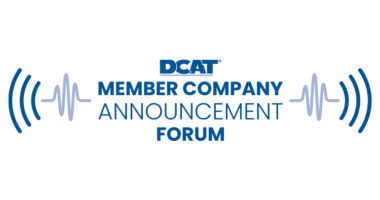US Government Releases Revised Plan for Drug Pricing Reforms
The US government has issued updated guidance for its drug-pricing negotiation plan, which for the first time allows the US government to negotiate drug prices under Medicare. It follows opposition from the bio/pharma industry challenging the constitutionality of the plan.
The battle over drug pricing in the US
At the center of the battle over drug pricing reforms in the US are measures in the Inflation Reduction Act, a major climate, tax, and healthcare bill that was signed into law in 2022 and includes measures to address the cost of prescription drugs in the US. A key provision under the new law is that for the first time ever, the US government, through the Department of Health and Human Services (HHS), was authorized and required to negotiate prices for certain prescription drugs under Medicare, the US federal health insurance program for people 65 or older. The process for implementing the new law began this year (2023), and the first negotiated prices are set go into effect in 2026.
The drug-pricing measures apply to select drugs under Medicare Part D, which covers most outpatient prescription drugs from pharmacies and other pharmacy providers, and Medicare Part B, which applies to prescription drugs administered in a physician’s office or clinical/hospital outpatient setting. The Medicare Drug Price Negotiation Program limits the number of drugs to be selected for price negotiations. Under the drug-price negotiation program, the HHS Secretary is authorized and required to select a specified number of drugs from a list of 50 “negotiation-eligible drugs” with the highest Medicare Part D spending and from a list of 50 “negotiation-eligible drugs” with the highest Medicare Part B spending over a given 12-month period. It would limit the number of eligible drugs for negotiations to 10 Medicare Part D drugs in 2026, 15 Medicare Part D drugs in 2027, 15 Medicare Part B and D drugs in 2028, and 20 Medicare Part B and D drugs in 2029 and thereafter.
In addition, the program also limits the type of drugs eligible to be negotiated under the drug-pricing plan. For example, the plan applies only to “high-cost” drugs defined by levels of Medicare spending, “older” drugs, defined on the basis of the number of years from when a drug was approved by the US Food and Drug Administration (FDA), and drugs without generic-drug and biosimilar competition.
Bio/pharma industry challenge constitutionaliy of the drug-pricing negotiation plan
The bio/pharma industry has challenged the US government’s authority and plans for implementing the Medicare Drug Price Negotiation Program. Last month (June 2023), the Pharmaceutical Research and Manufacturers of America (PhRMA), which represents innovator drug companies in the US, was joined by the National Infusion Center Association, and the Global Colon Cancer in filing a complaint in a federal district court in Texas asserting the price-setting provisions in the Inflation Reduction Act are unconstitutional. PhRMA’s lawsuit follows separate lawsuits also filed last month (June 2023) by the US Chamber of Commerce, Merck & Co., and Bristol Myers Squibb, with each of those parties filing their own lawsuits in federal district courts against the US government on the grounds that the price-setting measures under the Inflation Reduction Act are unconstitutional.
US goverment issues revised guidance on drug-pricing negotiation plan
Earlier this year (March 2023), the US Centers for Medicare and Medicaid Services (CMS), the US federal agency responsible for administering the Medicare and Medicaid programs, and the HHS detailed the actions they plan to take in implementing the Medicare Drug Price Negotiation Program, including when and how it will engage with stakeholders and gain input on the drugs selected for price negotiation.
PhRMA and others filing lawsuits against the US government contend that that plan for implementing the drug-pricing negotiation plan is unconstitutional as it relates to separation of powers and due process. “Congress has impermissibly delegated broad authority to HHS to set prices within Medicare with no meaningful constraints on the agency’s exercise of this new price-setting authority,” PhRMA specified in a June 21, 2023, statement. “This is in conflict with fundamental separation-of-powers and nondelegation principles in the Constitution.”
PhRMA also contends that the price-setting measure lacks transparency and do not adequately involve stakeholder input from drug manufacturers. “Unlike virtually any other statutory program affecting the public, the price-setting scheme denies manufacturers the right both to front-end input on how the policy will be implemented and to back-end judicial or administrative review after critical implementation decisions have been made,” PhRMA said in its statement. “And HHS has proposed in guidance to make the process even less transparent, preventing manufacturers from disclosing any information about the price-setting process. This violates the Plaintiffs’ and their members’ Fifth Amendment due process rights.”
The drug-pricing reforms also include fines for drug manufacturers that do not participate in the price-negotiation process, something that PhRMA also says are unconstitutional.
US government issues revised guidance on drug-pricing negotiation plan
In response to these challenges, the CMS issued late last month (June 2023), updated guidance on the implementation of the drug-pricing negotiation plan. CMS had issued its initial guidance and sought public comment on key elements of the Medicare Drug Price Negotiation Program in March 2023. The agency said it received more than 7,500 comments on the initial guidance from consumer and patient groups, drug companies, pharmacies, individuals, and other interested parties Late last month (June 2023), CMS issued revised guidance that further details the requirements and parameters of the new Medicare Drug Price Negotiation Program for the first round of negotiations, which will occur during 2023 and 2024 and that result in prices that will be effective beginning in 2026.
The revised guidance includes measure for how CMS intends to use its new authority to directly negotiate with drug companies that have chosen to participate in Medicare for lower prices on selected covered high-expenditure drugs without generic or biosimilar competition. In the negotiations, CMS says it will consider the selected drug’s clinical benefit, the extent to which it fulfills an unmet medical need, and its impact on people who rely on Medicare, among other considerations, such as costs associated with research and development and production and distribution for selected drugs.
In addition, CMS says that the revised guidance includes changes from its initial guidance released earlier this year (2023) that are designed “to improve transparency and foster an effective negotiation process,” CMS said in a June 30, 2023, statement. Changes include clarifications of how CMS will identify selected drugs (e.g., CMS will only consider active designations and approvals when evaluating a drug for the orphan drug exclusion). The changes also include revisions to and clarifications of the process applicable for participating drug companies of selected drugs. For example, it is revising confidentiality policy to state that CMS will release information about the negotiation when the explanation of the maximum fair price is published and that drug companies may choose to publicly discuss the negotiation at their discretion. In addition, CMS says the revised guidance includes additional opportunities for drug companies and members of the public to engage with CMS during the negotiation process on the selected drugs (e.g., through patient-focused listening sessions).
Also, the revised guidance includes clarifications of how CMS will engage in compliance and oversight activities. For example, CMS clarified that the agency intends to engage a Medicare Transaction Facilitator to facilitate the exchange of data between supply-chain entities to verify eligibility of maximum fair price-eligible individuals. The revised guidance also includes clarifications regarding Medicare Part D formulary inclusion for selected drugs. For example, the revised guidance clarified that CMS will expect Medicare prescription drug plans to provide CMS with a reasonable justification to support the submitted plan design for non-preferred tier placement of a selected drug with a maximum fair price and will use its existing formulary review process to assess any instances where Medicare Part D plans place selected drugs on nonpreferred tiers or apply utilization management. .
New implementation plan
In its revised guidance, the CMS outlined its implementation plan for it drug-price negotiation plan. By September 1, 2023, CMS will publish the list of the first 10 drugs covered under Medicate Part D selected for initial price applicability year 2026 under the Medicare Drug Price Negotiation Program. As part of the negotiation process, CMS says it will continue to collaborate and engage with the public in the implementation of the Inflation Reduction Act. This fall (fall 2023), CMS will host a series of patient-focused listening sessions on the drugs selected for negotiation for initial price applicability year 2026. These public sessions will be an opportunity for patients, caregivers, patient advocacy organizations, and others to share input on a selected drug’s therapeutic alternatives, how the drug addresses unmet medical need, and how the drug impacts specific populations. In addition, the public is also invited to submit data on therapeutic alternatives to the selected drugs, data related to unmet medical need, and data on impacts on specific populations by October 2, 2023. More information, including dates for the listening sessions and how to register, will be available in late summer (summer 2023).
Other key dates for implementation include:
- By September 1, 2023, CMS will publish the first 10 Medicare drugs selected for initial price applicability year 2026 under the Medicare Drug Price Negotiation Program.
- The maximum fair prices that are negotiated for these drugs will be published by September 1, 2024, and prices will be in effect starting January 1, 2026.
- In future years, CMS will select for negotiation up to 15 more drugs for 2027, up to 15 more drugs for 2028 (including drugs covered under Medicate Part B), and up to 20 more drugs for each year after that, as outlined in the Inflation Reduction Act.
Topics that are not relevant to the Negotiation Program for 2026, such as renegotiation, are not addressed in the revised guidance issued for 2026, the first year that negotiated prices will apply. CMS says it will provide additional information in the future related to program guidance for 2027 and 2028.
Industry responds back
PhRMA responded to the CMS’ revised guidance and said that the revised guidance does not address the concerns raised by the group. “While patients, providers, manufacturers and other stakeholders should have a say in how a policy of this magnitude is implemented, CMS incorporated very little of the feedback provided on its final IRA [Inflation Reducation Act] price-setting guidance,” said PhRMA in a June 30, 2023, statement. “The very few substantive changes to the final guidance demonstrate CMS saw this as a box-checking exercise, not an opportunity to mitigate the negative impacts this price-setting policy will have on patients or the broader health care sector.”
PhRMA further said in its statement: “The approach CMS took in this final guidance confirms what we claimed in our lawsuit – Congress’ unconstitutional shortcuts taken in the law have given the administration far too much flexibility to set prices at their whim without any oversight or accountability to anyone.”
Specific concerns raised by PhRMA include limitations on transparency. “While we appreciate CMS recognizing it went well beyond legal limits and rescinding the proposed ‘gag clause’ in the final guidance, CMS will continue to limit opportunities for manufacturers to raise issues of concern and provide feedback,” said PhRMA in its statement, adding that CMS will not share any information about how or why decisions are made until months after the price is set.
In addition, PhRMA says that “CMS has not committed to stating what evidence they intend to use in evaluating a medicine and setting its price.” In addition, PhRMA says that while there will be “listening sessions” with patients in the fall of 2023, it’s not clear how much patients and providers will truly be able to affect the process of price setting, or how much CMS will share with stakeholders.”
In addition, PhRMA expressed concerns that the revised guidance limits patient access as Medicare Part D beneficiaries could have less access to medicines because of fewer plans and more restrictive formularies. It also says that “CMS is disincentivizing manufacturers from conducting research and development for new treatment options, which would especially affect younger patient populations and those with rare diseases who have significant unmet medical needs.”







